3-2-2023 (issue No. 77)
Eric Zorn is a former opinion columnist for the Chicago Tribune. Find a longer bio and contact information here. This issue exceeds in size the maximum length for a standard email. To read the entire issue in your browser, click on the headline link above.
This week
Would a different voting method have changed the mayoral race?
News and Views — On Scott Adams and the R. Kelly sentence
Land of Linkin’ — Where I tell readers where to go
The impressive bloodlines of Hinsdale Central star athlete Ben Oosterbaan
The Paradox of Education — A provocative passage from a James Baldwin speech
Mary Schmich — A civil rights legend you’ve probably never heard of
Re:Tweets — Featuring the winner of the visual tweets poll and this week’s finalists
Tune of the Week — As nominated by WGN-AM 720 host John Williams
Let the Democratic civil war begin!
The most progressive of the leading contenders for mayor will face the most conservative of the leading contenders in a technically nonpartisan April 4 runoff that will pit factions of the Democratic Party against one another.
I had predicted as late as Tuesday morning that Brandon Johnson and Chuy Garcia would split the progressive vote and Lightfoot would run through the gap between them eke her way into second place — a change from my much earlier prediction that Garcia would make the runoff against Vallas. So you can see how cloudy my crystal ball is.
We’ll never know if I was right that Garcia would have stood a better chance against Vallas than Johnson does. But I still say — and now worry — that Johnson’s aggressive tax proposals, his approach toward public safety and his job as an organizer for the Chicago Teachers Union will be a bit too much for Chicago voters, who over the years have charted a moderate Democratic course.
The next five weeks hold out the promise of being a campaign focusing on the many policy differences between Vallas and Johnson, with both candidates laying out the case for why their proposals will lead to a brighter, safer future.
And there are excellent, substantive, illuminating debates to be had.
I’m not optimistic. Johnson spent four minutes of his 19-minute victory speech Tuesday night tearing after Vallas by name and striking an unusually personal and aggressive tone — “This is the truth about Paul Vallas. He has literally failed everywhere he has gone” — on a night traditionally reserved for the sort of uplifting boilerplate we heard in Vallas’ nearly 11-minute victory speech, in which he did not once allude to Johnson.
Vallas waited to fire back until a news conference Wednesday in which he accused Johnson of having “no track record” or else trying to hide his track record. He referred to Johnson’s plan to enact an employee head tax at large companies that perform 50% or more of their work in Chicago as his “‘let’s destroy Chicago’s economy’ plan.”
Lots of money is going to pour into the race from around the country — Vallas is a champion of “school choice” and the backers of that idea have deep pockets; Johnson represents the interests of politically active unions. I look for a loud and unpleasant campaign that will present the sharpest ideological contrast in a seriously contested mayoral election as Chicago has seen since the 1980s.
As for Lightfoot, Tribune City Hall reporter Gregory Pratt offered this on Twitter:
A longtime Lightfoot aide sums up her re-election loss: “Lessons: You can’t run on a platform and then completely abandon it. You can’t run against the status quo, and then fill your administration with the status quo. And you can’t be mean to everyone who tries to help you.”
My time covering City Hall coincides with Mayor Lightfoot's political career. There's a lot I admire about her. She was mayor through a brutal era and did her best in good, bad and ugly times. We had clashes. I cover the people I cover hard. But I have nothing but respect for her.
I, too, have respect for Lightfoot. I voted for her twice in 2019 and had very high hopes for the reign of a tough, determined agent of positive change. She faced enormous unforeseen challenges, yes, but ended up being her own worst enemy as a politician.
Books will be written about Lightfoot’s rocky tenure and the reasons why she failed to win reelection after an overwhelming victory just four years earlier. For now, I direct you to two excellent recaps in the newspapers:
”In 4 years, Lori Lightfoot went from breakout political star to divisive mayor of a Chicago beset by pandemic and crime,” by Pratt and his Tribune colleague Alice Yin.
“How Lightfoot went from political rock star to rock bottom,” by the Sun-Times’ Fran Spielman.
The winner of the reader contest to predict the election result was JakeH, whose top-five forecast last week was:
Vallas 30% Johnson 20% Garcia 20% (narrowly behind Johnson) Lightfoot 15% Wilson.10%
He wins a free six-month extension on his Picayune Plus subscription and, even more valuable, a tip of my fedora.
Last week’s winning tweet
Yesterday our neighborhood hairdresser was arrested for selling drugs. I was her customer for 10 years. I had no idea she was a hairdresser.
A very good joke that plagiarists love to pass off as their own, sometimes changing the number of years and the profession. I can’t identify who came up with it
Here are this week’s nominees and the winner of the Tuesday visual-tweets poll. Here is the direct link to the new poll.
Would a different voting method have changed the mayoral race?
Research analyst Rachel Hutchinson of FairVote, an organization promoting ranked-choice voting (also called instant runoff voting), offers this analysis of Tuesday’s election:
Paul Vallas and Brandon Johnson advanced to the runoff with just over 50% of voters affirmatively choosing one of them. In the 5th, 6th, 21st, and 48th Wards, the top two finishers won less than 50% of votes combined. This kind of dynamic has become a pattern; in the last mayoral race in 2019, only 33% of voters cast their first-round ballot for either Lori Lightfoot or Tori Preckwinkle.
This won't come as a shock to you -- Despite many candidates claiming to have similar values (for example, several candidates identified as progressive, and they all identified as Democrats), the mayoral campaign was extremely contentious. With ranked-choice voting (RCV) , we might have seen candidates finding common ground, and even cross-endorsing or campaigning together. We saw this in New York City’s 2021 Democratic mayoral primary, where opponents Andrew Yang and Kathryn Garcia did just that.
At least in the mayor’s race, it’s hard to identify an obvious and clear pattern of vote-splitting that likely would have changed the outcome (for example, we did see this in a Detroit congressional race last year, where 8 Black candidates split over 70% of the vote and a non-Black candidate won with 28%).
But it’s likely that votes were split among the large number of progressive candidates in the race (even though one advanced), including between Lightfoot and Garcia in the “high name recognition, moderate/establishment progressive” lane.
Interestingly, this faction won’t be represented at all in a two-person runoff – which will be between the leftmost candidate and one of the rightmost candidates. In an “Alaska model” sending four candidates to an RCV runoff, this faction would be represented.
I told readers Tuesday about Sam Hyson’s experiment that used a reader survey to compare four different voting methods. Here is a report on the results that, though skewed to Brandon Johnson by the self-selected respondents, shows how various methods can yield significantly different results.
Using our current method ofvoting, Hyson’s anonymous online voters put Brandon Johnson and Paul Vallas in the runoff.
But using “approval voting,” in which voters can register support for as many of the candidates as they wish, Kam Buckner made the runoff:
Ranked-choice voting would have given Johnson an outright victory (though, again, the “voters” here are far more heavily skewed toward Johnson supporters that the actual electorate was):
Finally, here are the results using a method called STAR (Score-Then-Automatic-Runoff), “a method where voters rate each candidate on a scale of 0-5. … The two top-scoring candidates advance to an automatic runoff in which each voter's full vote goes to whichever finalist is scored higher on their ballot.”
This suggests to me that Buckner, who finished in seventh place with 1.8% of the vote, was far higher in the esteem of many voters.
News & Views
News: “Dilbert” Cartoonist Scott Adams self-destructs with a bizarre racist rant on YouTube
View: Adams has been inclining toward right-wing paranoid kookiness for some time now, but his ugly remark — “Based on the current way things are going, the best advice I would give to white people is to get the hell away from Black people” — startled me nevertheless. Also startling was what prompted his outburst, responses to a question on a Rasmussen Reports poll that asked people if they agreed with the statement “It’s OK to be white.”
Adams was incensed that fully 26% of Black respondents said they did not agree, while another 21% said they weren’t sure.
But wait a minute. What kind of meaningless, grab-ass question is that? What does it mean to say, “It’s OK to be white?”
The best write-up of this I’ve read is by Chicago Substacker Parker Malloy who detailed how “It’s OK to be white” became a slogan promulgated by white supremacists and is patently malign to those who know that history.
If you were to poll people on whether they want the United States to improve, to become greater than it currently is (whatever one’s assessment of what “currently” means or “greater” would be), I imagine you’d end up with a pretty high level of agreement among the population, across political ideologies.
But if you polled people to see whether or not they agreed with “Make America Great Again,” it’s safe to say there would be a much more conflicted set of results, as people would recognize that as Donald Trump’s slogan. The same goes for “America First.” Disapproval of those statements aren’t necessarily a comment on one’s feelings about “making America great” or putting the country first, but may be more about the campaign pushing the slogan.
Context matters. The goal of these right-wing operations is to pick something super vague that on its own and in any other context is something completely innocuous, use it as a bit of a wink and a nod to the people who are “in on the joke” (and agree with them) while mocking those who understand the “joke,” but call BS.
Similarly, think how the seemingly uplifting phrase “All Lives Matter” became a coded, even racist rejoinder to the phrase “Black Lives Matter.”
Adams fell for the propaganda trick that the right-wing pollster used in an effort to inflame racial tensions. So he’s not just a racist; he’s an idiot.
News: Federal judge gives R. Kelly just one additional year in prison reasoning that the predatory singer will be 80 when he’s released and “Eighty-year-olds are (not interested) in grooming young women, but probably (focusing) on their prostate and their arthritis and all the other factors that go into the aging process.”
View: U.S. District Judge Harry Leinenweber is 85 and probably knows whereof he speaks regarding the priorities and proclivities of octogenarians. But incapacitation (preventing someone from reoffending) is just one of the four main purposes of imprisonment.
The others are rehabilitation (teaching or inspiring a prisoner not to do evil again), retribution (simply punishing the prisoner for misdeeds) and social deterrence (showing others the consequences of crime).
Judge Leinenweber seems to have all but ignored the demands of retribution and social deterrence with his airy, “oh, he’ll be an old man then and won’t be raping and otherwise sexually exploiting women” sentencing decision. “Few girls would be susceptible to his charms as an 80-year-old with no money and no prospects,” he said.
No doubt true. But justice for Kelly’s victims in this particular case demanded more than a token extension of his existing sentence. And the message needs to go out to sexual predators that they will die in prison if they act on their urges as Kelly did.
News: Chicago Police Supt. David Brown to Resign Later This Month
View: Brown’s hasty departure reads to me like an upraised middle finger to the two candidates in the mayoral runoff election, both of whom have said they would replace him. The classy move, and the move best for the department charged with guarding public safety, would have been to have coordinated his departure with the appointment of a new superintendent by the next mayor, obviating the need for interim leaders. Brown may not have owed Vallas and Johnson anything, but he owed the city that much.
The Tribune’s Jeremy Gorner and Jake Sheridan have a terrific, in-depth look at Brown’s tenure and departure.
News: Brandon Johnson continues to duck questions about his previous embrace of the slogan “defund the police.”
View: He can run from this question but he can’t hide from it for five weeks. From the Tribune:
(Johnson) also again dodged a question about his stance on defunding the police, which he embraced in 2020 but has watered down his stance after launching his campaign. When asked again, he passionately shot back, “I get how they are trying to paint a brother.”
The odd ‘couple’
University of Illinois at Chicago professor emeritus Chris Mooney is quoted in a Tribune story on the problems that beset Mayor Lori Lightfoot:
Everyone’s whiplashed on this. The George Floyd (unrest), defund the police — (then) all of a sudden there’s a couple carjackings and people are like, ‘Bring in the white guy.’
In 2021 alone, the Cook County Sheriff's Office confirms that Chicago saw nearly 2,098 incidents of vehicular hijacking. According to reports, that's more than double the amount in New York City and Los Angeles combined. … According to data analyzed from NBC 5 Investigates, from Jan. 1 through July 24 of 2022, Chicago saw 942 vehicular hijackings, which averages to more than four a day.
Mooney’s airy accusation of racism and dismissal of concerns over a rash of very disturbing crimes struck this emeritus columnist as unfair and obtuse.
Land of Linkin’
Want to know the story behind my friendship with Neil Steinberg? Read my recent posting at his blog. Some 200 Picayune Sentinel readers responded last week to my offer for a free, no-strings attached subscription to Neil’s “Every Goddamn Day” blog, the reading of which is part of my morning routine. Miss it? Click here and submit your request.
Art nerds will love “The Art of the Shadow: How Painters Have Gotten It Wrong for Centuries” in the MIT Press Reader.
Better Government Association: “Chicago’s City Council Spends One-Third of Its Meetings on Honorary Speeches.” Sixty percent of meeting time is “spent noting significant birthdays, retirements, tributes and other non-binding resolutions. … Chicago is unique among the nation’s largest cities in devoting so much floor time to honorary measures, and in allowing them to take place at any time throughout the meeting.”
“Voice Deepfakes Of Celebs Are Taking Over Social Media” describes and illustrates a burgeoning trend. The examples show that the amateur-generated fakes are amusing but not particularly convincing. Yet I continue to voice alarm that evolved deepfakes will be a grave threat to democracy.
Buzzfeed: “A Tech Worker Is Selling A Children's Book He Made Using AI. Professional Illustrators Are Pissed.”
Speaking of AI, take a look at “Every American president, but they're all cool and they all sport a mullet.” Here’s Joe Biden:
“The Kid Should See This — Smart videos for curious minds of all ages.” This site features a “collection of over 5,000 kid-friendly videos, curated for teachers and parents who want to share smarter, more meaningful media in the classroom and at home.”
“The Shredding of Midwestern Newspapers” by Middle West Review editor Jon K. Lauck is deeply depressing: “The once-mighty Chicago Tribune had a newsroom of 670 people in 2006; now it is about 120. In 2007 the circulation of the Chicago Tribune was 566,827; now it is 106,000.”
This graph posted at Statista is similarly bleak:
“Nancy Comics by Ernie Bushmiller” is a Twitter fan page devoted to celebrating, unironically, one of the least amusing popular comic strips in history.
“The week I spent with our son Henry after he died — In a personal essay, Mary Forrest, wife to NBC’s Richard Engel, writes about saying goodbye to her son’s physical body.” No, there’s something in your eye.
The Picayune Sentinel preview: Tuesdays at 11:30 a.m. I talk with WGN-AM 720 host John Williams about what’s making news and likely to be grist for the PS mill. The WGN listen-live link is here.
The great grand Oosterbaan
In a Sun-Times prep sports story last week, the name of Hinsdale Central’s star basketball (and baseball) player jumped out at me: Ben Oosterbaan.
The name Benny Oosterbaan is familiar to many of us University of Michigan graduates.
Three times an All-American in football, twice an All-American in basketball and twice an All-Conference player in baseball, Oosterbaan was Michigan's greatest all-time all-around performer. … As an end on the football team in 1925, Bennie led the Big Ten in touchdowns. In 1928 as a basketball player, Oosterbaan led the Big Ten in scoring, then turned his attention to baseball, where he finished as the conference's leading hitter. … From 1939-46, was head coach of the Wolverine [basketball team]. When Fritz Crisler stepped down in 1947, Bennie was named U-M's head football coach. In his first season, the '48 Michigan football team went 9-0, won the Big Ten and claimed the national championship.
That was the last outright national title won by the Maize and Blue.
Anyway, the story mentions that Oosterbaan is a Michigan recruit in baseball, but doesn’t mention that Ben Oosterbaan is the great-grandnephew of Bennie Oosterbaan, who died at age 84 in 1990.
‘The Paradox of Education’
Here is a compelling quote from “A Talk to Teachers,” a 1963 speech by James Baldwin:
The paradox of education is precisely this—that as one begins to become conscious one begins to examine the society in which he is being educated. The purpose of education, finally, is to create in a person the ability to look at the world for himself, to make his own decisions, to say to himself this is black or this is white, to decide for himself whether there is a God in heaven or not.
To ask questions of the universe, and then learn to live with those questions, is the way he achieves his own identity.
But no society is really anxious to have that kind of person around. What societies really, ideally, want is a citizenry which will simply obey the rules of society. If a society succeeds in this, that society is about to perish. The obligation of anyone who thinks of himself as responsible is to examine society and try to change it and to fight it—at no matter what risk.
This is the only hope society has. This is the only way societies change.
Illinois Democratic U.S. Rep. Sean Casten of Downers Grove tweeted it out recently and added this commentary:
(Baldwin’s) wisdom still defines and animates all the culture wars, 60 years later. … Slaveholders didn't want slaves to learn to read for the same reason that Ron DeSantis doesn't want to teach CRT; for the same reason that homophobes don't want to acknowledge the LGBT community in health classes. Because an educated populace will ask questions.
You do not improve, you do not grow, you do not bend the arc of history without education. You also do not alienate existing power structures without education.
To truly educate is an act of hope and optimism for the future. It is an act of bravery to challenge existing power structures. And it is an act of courage and self-confidence to trust young people with an education.
Which is why it will always be opposed by pessimists and cowards in equal measure.
Mary Schmich: A civil rights legend you’ve probably never heard of
My former colleague Mary Schmich posts occasional column-like entries on Facebook. Here, reprinted with permission, is her most recent offering:
Not long ago I read Martin Luther King Jr.’s “Letter from a Birmingham Jail” for the first time, and in the midst of all those powerful words I was taken up short by a name I didn’t expect.
In a passage deploring the behavior of white moderates and the white church in the quest for racial justice, King wrote:
I am thankful, however, that some of our white brothers in the South have grasped the meaning of this social revolution and committed themselves to it. They are still all too few in quantity, but they are big in quality. Some—such as Ralph McGill, Lillian Smith, Harry Golden, James McBride Dabbs, Ann Braden and Sarah Patton Boyle—have written about our struggle in eloquent and prophetic terms.
Wait. Lillian Smith? My mother’s Miss Lil?
I grew up on tales of Miss Lil, who ran the North Georgia girls’ camp my mother attended in the 1930s and ‘40s. I’ve always thought of her as a trailblazer in racial matters, have always known that her influence changed my mother’s life, and by extension, mine and my siblings’.
She was semi-famous in her day, but I've rarely met anyone who has heard of her. Seeing her mentioned in King’s letter made me think, as I often have, that she deserves more recognition.
In 2002 I wrote a column about her, pegged to Black History Month, so as we segue from that into Women’s History Month I want to share a little of her story.
One thing that I don't mention in the column is that Miss Lil was a lesbian and had a long-term partner, though it apparently wasn't something they spoke of openly. After I wrote this column in 2002, the woman who was living up on Miss Lil's property invited me and my mother to visit and told us more about that, but that's a story for another day.
Miss Lil
My mother was 14 the first time she made her way up the red dirt road to Laurel Falls Camp, where a woman named Miss Lil slyly taught Southern white girls the history of the Negro. This was in the racially segregated South of 1937, long before much of anyone could have dreamed that February would one day be designated our national Black History Month.
My mother’s British uncle had decided that year that it was time for his starstruck niece to spend her mind on something besides movie heartthrob Nelson Eddy. Her parents were happy to have him subsidize Mary Ellen’s summer at Laurel Falls where, it was said, a girl could learn not only to ride and hike but to write and think.
What my grandparents and the parents of many Laurel Falls girls didn’t seem to realize, though, was that up there amid the forests and waterfalls of the Georgia hills, Lillian Smith was teaching her campers to defy their Southern way of life.
“To wake up the little sleeping beauties that our Anglo-American culture has anesthetized, or rather put in a deep freeze,” Smith once wrote of her camp-marm subversions.
At first, my mother didn’t like Miss Lil, this gray-haired, big-nosed woman with a remote smile who answered questions by asking questions. But she loved the series of skits, labored over for a full summer, that attempted to synopsize the history of black people from Africa to Atlanta.
She couldn’t know then that Miss Lil would become a renowned civil rights champion whose writing appeared in publications as diverse as Redbook and the Chicago Defender. In the five summers she spent there, my mother knew only that she loved this camp and the way it allowed her to believe something her heart had always felt — that black people were as fully human as she was.
“Miss Lil was trying to raise a different generation of white girls,” she says. “She never said that. She didn’t say a whole lot unless we questioned her. She just let it occur to us that blacks were equal. Or I don’t know if at that point we thought about equality per se. But we just became upset, upset about the way black people were treated.”
The last summer my mother spent at Laurel Falls, a half-dozen or so older “leadership” girls would gather at night around the fireplace in the old stone library to hear Miss Lil read from her book in progress. They’d never heard things like this, the story of love between a black girl and a white boy in a small Southern town.
Soon afterward, Lillian Smith published her book, “Strange Fruit,” named after Billie Holiday’s famous song about lynching. It sold 3 million copies, rode to No. 1 on the best seller list, and the parents of Laurel Falls girls finally realized the kind of racial education Miss Lil was up to. My grandfather was particularly incensed that she’d named a character Prentiss, spelled just like he spelled his name.
After that, when Miss Lil invited my mother to be the camp’s music director for a summer, she said no.
“In a different generation, I would have gone,” she says. “But in this generation, I knew that it would just kill my parents.”
Later, though, under Miss Lil’s influence, my mother went to work as a counselor in a Boston Girl Scout camp that, shockingly, invited black girls for the first time that summer.
“In defense of the parents of our generation — well, I don’t need to defend them — but for generations they had been told that blacks did not have basic intelligence,” my mother says. “They learned blacks were not equal. Miss Lil taught us that they were. Without saying it. We just did the history.”
My mother still wonders if she could and should have done more to make the South change faster, but her small rebellions mattered. One of those was simply to raise her children with stories of Miss Lil and Miss Lil’s lessons.
Here’s one of the Miss Lil lessons I inherited: We’re all products not only of the past, but of what we learn about the past. Do the history. And remember that black history is white history, too.
Minced Words
Host John Williams’ overriding emotion Tuesday night was sadness. He explains why to me and Austin Berg in this week’s post-election episode of “The Mincing Rascals,” an award-winning podcast. Subscribe to us wherever you get your podcasts. Or bookmark this page. If you’re not a podcast listener, you can now hear an edited version of the show at 8 p.m. most Saturday evenings on WGN-AM 720.
Re: Tweets
In Tuesday’s paid-subscriber editions, I present my favorite tweets that rely on visual humor and so can’t be included in the classic Tweet of the Week contest in which the template for the poll does not allow the use of images. Subscribers vote for their favorite, and I post the winner here every Thursday:
The new nominees for Tweet of the Week:
Tips for improving concentration: 1. Make a list of tasks. 2. Take on one task at a time. 3. “Take On Me” was a fun song. 4. Ooh I found the video. — @JohnLyonTweets
A lot of people sarcastically call me Einstein. Whoever that is. — @SamSkoronski
I hate everyone in front of me in this traffic jam. Everyone behind me is cool. — @Tbone7219
They made the Duolingo owl cute to hide the fact that he's a judgmental little prick. — @Rotten_Wendy
I can't stop thinking about people that first ate mushrooms they found and just had to go through trial and error, like, this one tastes like beef, this one killed Brian immediately and this one makes you see God for a week. — @therussellshaw
Whenever my doorbell rings I'm mildly worried it's Mormons but I'm secretly terrified it's a traveling minstrel singing a ballad about my impending doom. — @wildethingy
Jesus pulling Matthew, Mark, Luke and John to the side and being like, “You guys are the big dogs.” — @Senn_Spud
“Someday I’m gonna get off this farm and make something of myself.” …Young McDonald. — @foolishbran
I always say I heat up pizza rolls in the oven because they taste better that way, but the truth is the amount of them I eat won’t fit in the toaster. — @portmanteauface
Everyone always wants to know "Where's Waldo?" but no one ever asks "How's Waldo?" — @JasonGrvin
Vote here and check the current results in the poll. For instructions and guidelines regarding the poll, click here.
Tune of the Week
This week, I asked WGN-AM 720 host John Williams, convener of “The Mincing Rascals” podcast and a longtime friend, to name his current favorite song. He submitted “No Hard Feelings” by the Avett Brothers:
When my body won't hold me anymore And it finally lets me free Will I be ready? When my feet won't walk another mile; And my lips give their last kiss goodbye Will my hands be steady when I lay down my fears, my hopes, and my doubts? The rings on my fingers, and the keys to my house With no hard feelings
John wrote:
I’ve been thinking about this song and playing it more lately. My parents are old and failing, often angry at the world and definitely not going gently into that good night. (I’d like Dylan Thomas to visit my folks and then explain to me the virtue of raging against the inevitable.)
I hate the idea that they would leave this world bitter, with hard feelings about their care, their feelings, their current circumstances, and not reflect on the good fortunes they’ve had.
That we would all live and die with “no hard feelings” is easier said than done, but it’s a better tribute to our “dying of the light.”
Consult the complete Tune of the Week archive!
The Picayune Sentinel is a reader-supported publication. Browse and search back issues here. Simply subscribe to receive new posts each Thursday. To support my work, receive bonus issues on Tuesdays and join the zesty commenting community, become a paid subscriber. Thanks for reading!





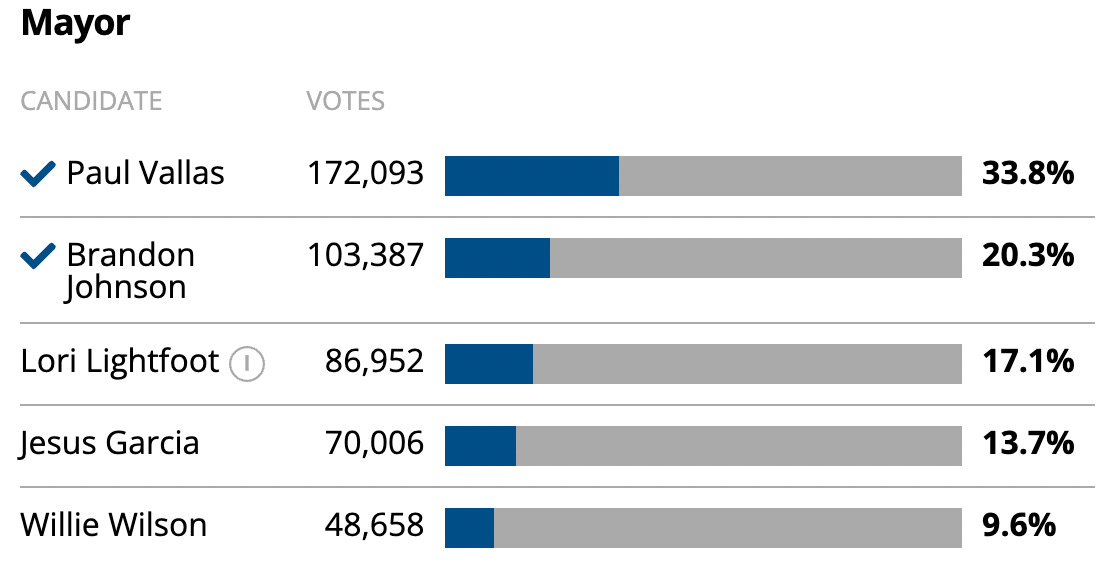



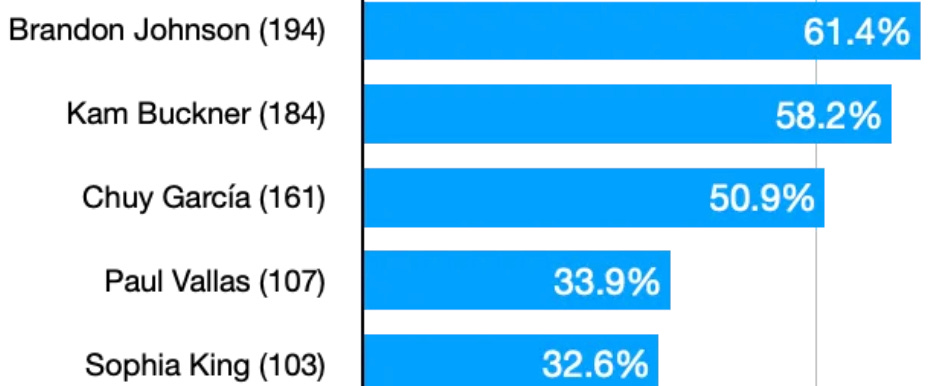
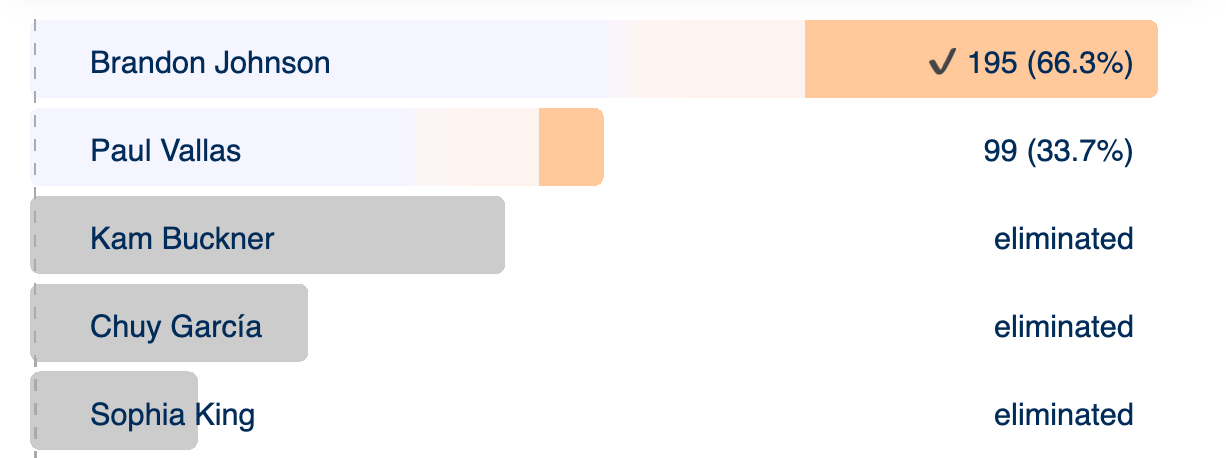
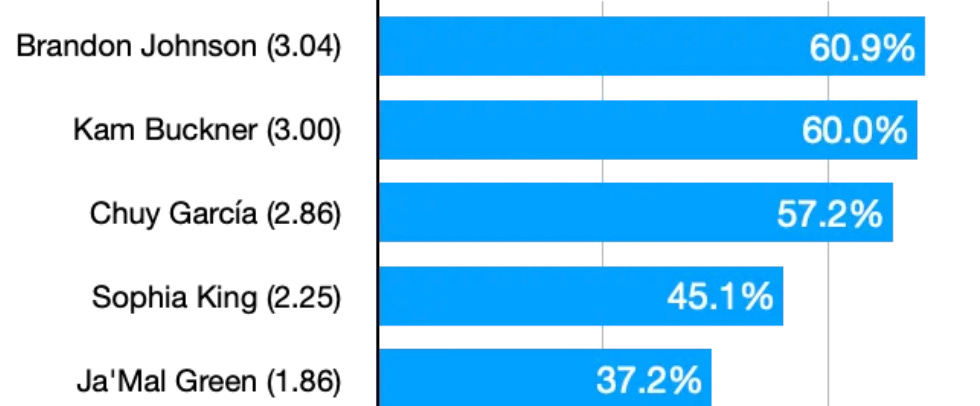
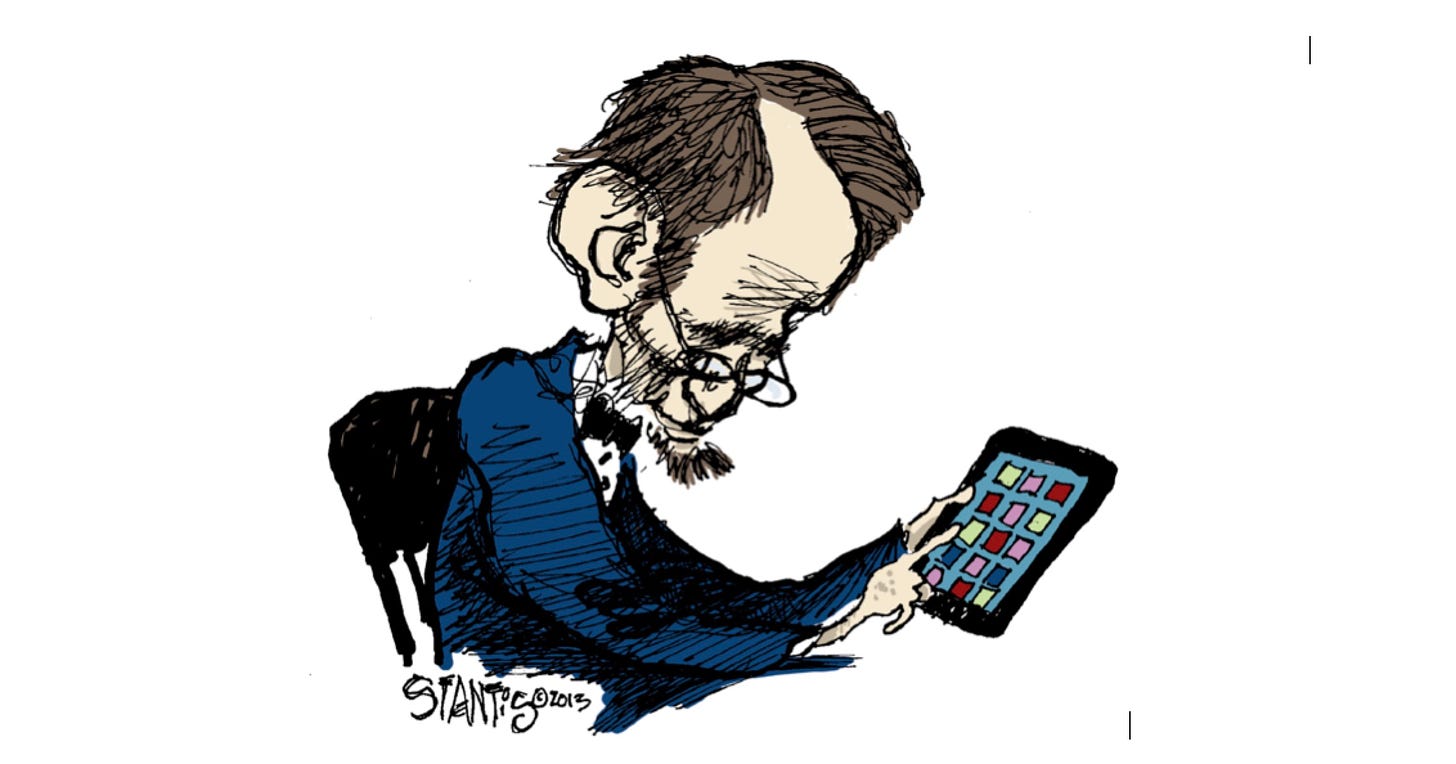

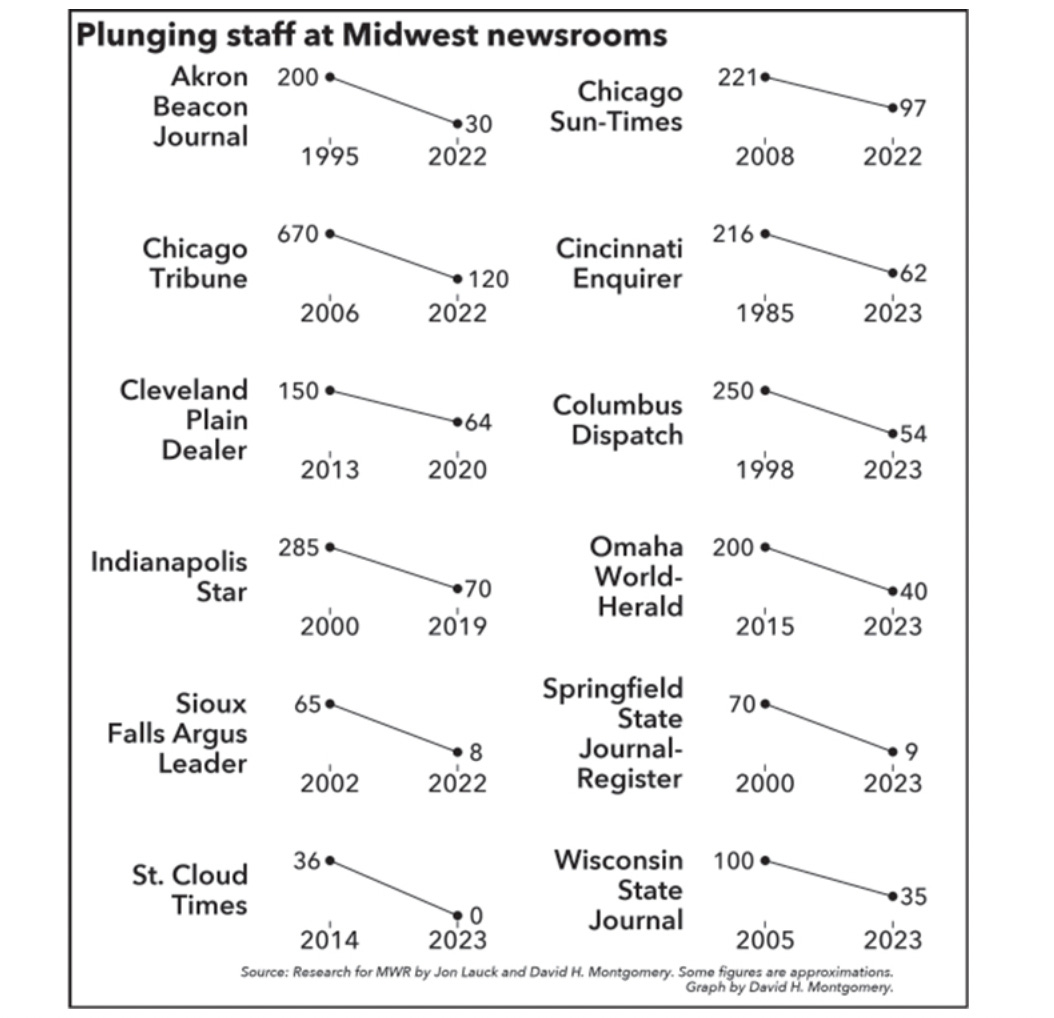
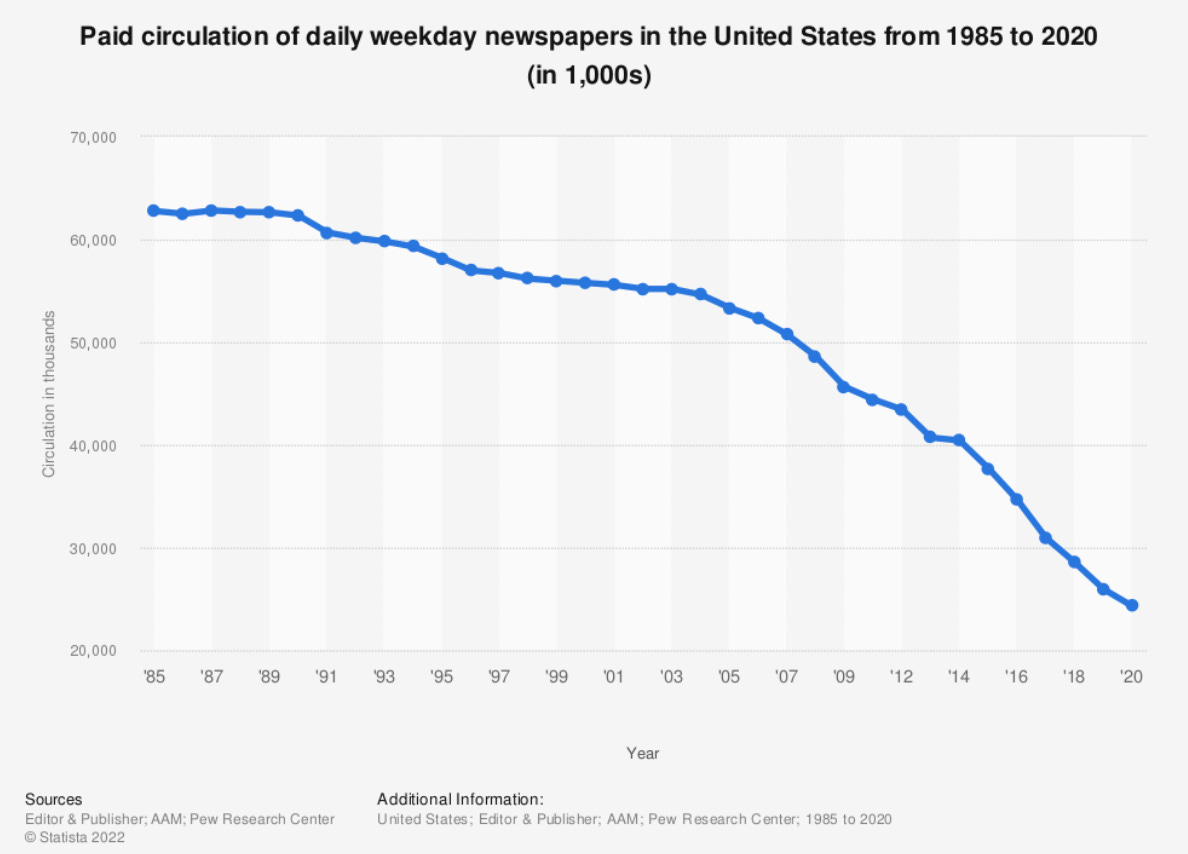
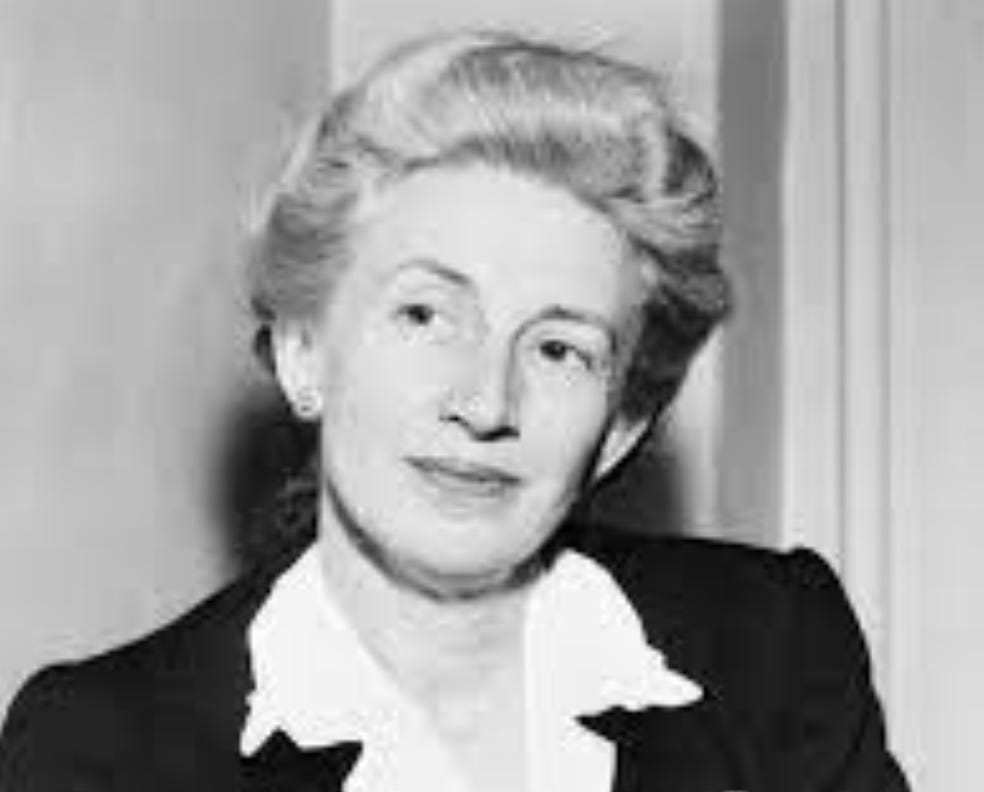
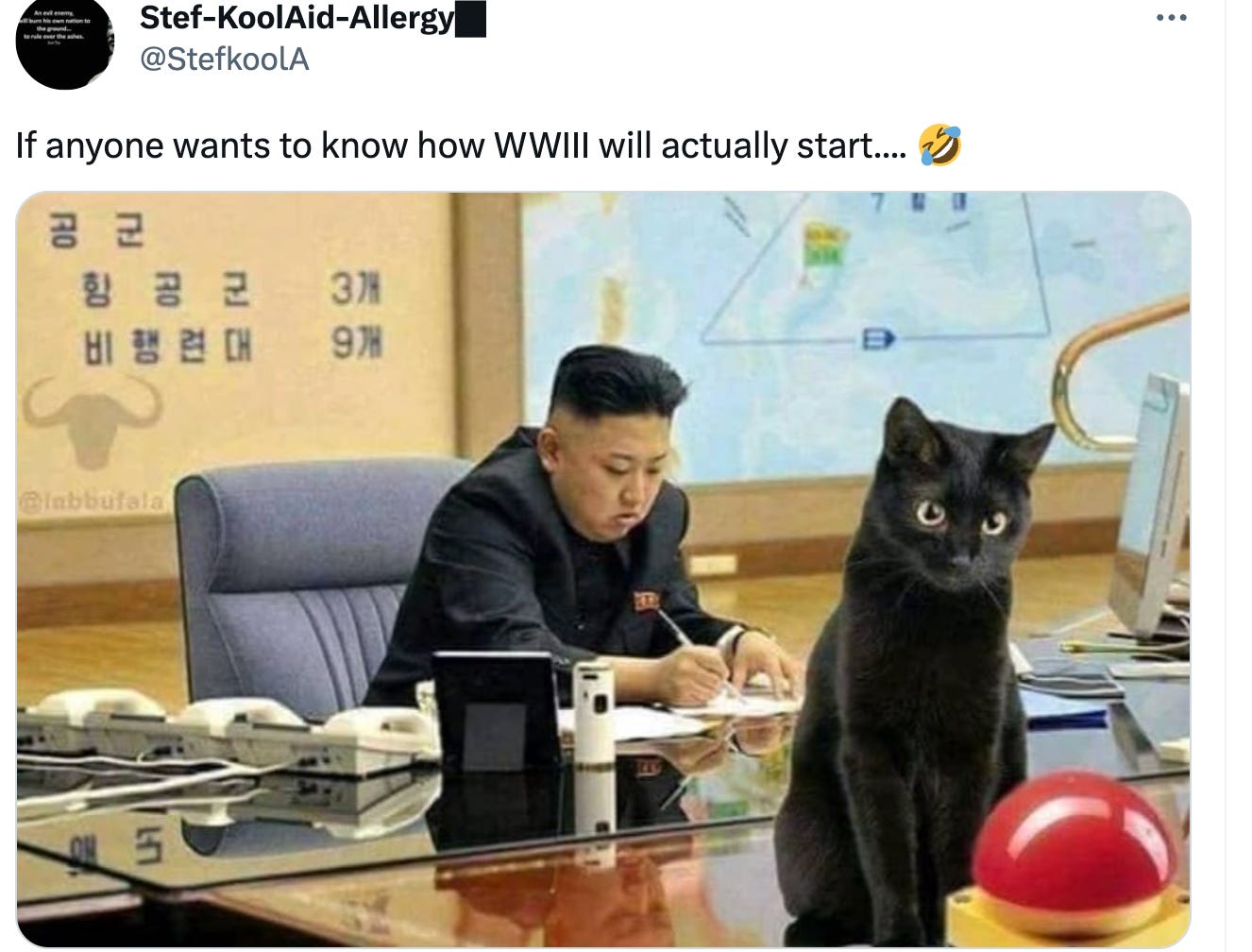

I knew it was bad but reading that Chicago has over twice the number of car jackings as New York and Los Angeles combined still shocks me. What is it about Chicago that our rate of car jackings is 8 times higher than those cities? New York probably has fewer cars but LA has more per capita. Both cities had extended pandemic school closings, suffer high rates of poverty, homelessness, public education problems, and issues of police trust in minority communities. But then I read today's CBW account of the 18 year old that killed the Chicago police officer last night. Police caught him in a pretty serious shooting incident last summer but prosecutors let him off with a misdemeanor and later dropped that. His 22 year old partner in that incident was let out on $200 bail and three weeks later robbed a women at gunpoint. Somehow between our policing strategies and our lax prosecution and judicial system these criminals in Chicago know that their chance of facing consequences for their actions are very low. Brandon Johnson's solutions of more summer jobs for youth (did he not see all the help wanted signs everywhere last summer??) and diverting police funds to additional mental health facilites are not going to make a dent in this uniquely Chicago crisis.
i don't often read mary schmich's pieces when EZ publishes them in the PS - which is a shame, because i enjoyed reading MS regularly when she wrote for the Trib. MS' piece today, on Miss Lil and her undermining of racial orthodoxy in the old South, was exquisite.